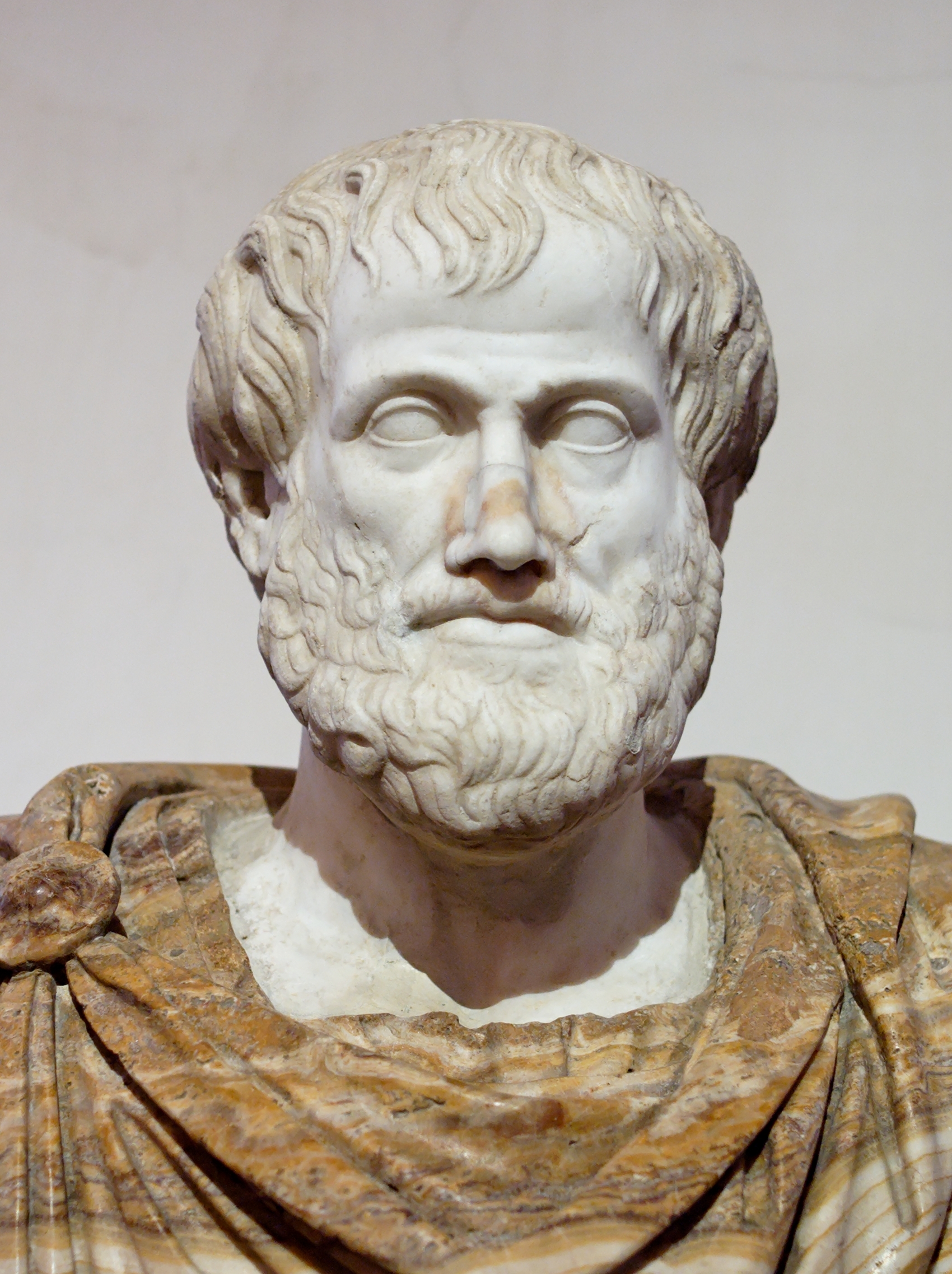La définition fameuse de la tragédie par Aristote, exposant la notion de catharsis.
Poétique
Aristote citations célèbres
Citations sur les hommes et les garçons de Aristote
Politique
Aristote Citations
Éthique à Nicomaque
Métaphysique
Organon, V - Topiques
Organon, V - Topiques
Définitions du citoyen et de la cité.
Politique
Politique
“Le bonheur, avons-nous dit, est une certaine activité de l’âme conforme à la vertu.”
Éthique à Nicomaque
La Politique
Aristote: Citations en anglais
“For the things we have to learn before we can do, we learn by doing.”
Book II, 1103a.33: Cited in: Oxford Dictionary of Scientific Quotations (2005), 21:9
Nicomachean Ethics
Source: The Nicomachean Ethics
“Without friends no one would choose to live, though he had all other goods.”
Book VIII, 1155a.5
Nicomachean Ethics
Source: The Nicomachean Ethics
Source: Emotional Intelligence: Why It Can Matter More Than IQ
Source: ARISTOTLE, The Nicomachean Ethics
“Homer has taught all other poets the art of telling lies skillfully.”
1460a.19
Poetics
Variante: It is Homer who has chiefly taught other poets the art of telling lies skillfully.
Attributed to Aristotle in Bernhoff A. Dahl, Optimize Your Life! http://books.google.gr/books?id=B1Z2XP_DamQC&dq=, Trionics International Inc., 2005, p. 111.
Disputed
“Subjects are also kept poor by payment of taxes.”
Book V, 1313b.16
Politics
“There is only one way to avoid criticism: do nothing, say nothing and be nothing.”
Misattributed
Source: Elbert Hubbard, Little Journeys to the Homes of American Statesmen (1898), p. 370 http://hdl.handle.net/2027/osu.32435065322687?urlappend=%3Bseq=458: "If you would escape moral and physical assassination, do nothing, say nothing, be nothing—court obscurity, for only in oblivion does safety lie." Other versions of the saying were repeated in several of Hubbard's later writings.
“Plato is dear to me, but dearer still is truth.”
Amicus Plato, sed magis amica veritas.
A similar statement was attributed to Aristotle in antiquityː ""Φίλος μὲν Σωκράτης, ἀλλὰ φιλτέρα ἀλήθεια."" [""Socrates is a friend, but truth is a greater.""] — Ammonius Hermiae, Life of Aristotle (as translated in Dictionary of Quotations http://archive.org/details/dictionaryquota02harbgoog (1906) by Thomas Benfield Harbottle, p. 527). The variant mentioned above may possibly be derived from a reduction of a statement known to have been made by Isaac Newton, who at the head of notes he titled Quaestiones Quaedam Philosophicae (Certain Philosophical Questions) wrote in Latin: ""Amicus Plato— amicus Aristoteles— magis amica veritas"" which translates to: ""Plato is my friend— Aristotle is my friend— but my greatest friend is truth."" (c. 1664)
Another possible origin of the ""dear is Plato"" statement is in the Nicomachean Ethics; the Ross translation (of 1096a.11–1096a.16) provides: ""We had perhaps better consider the universal good and discuss thoroughly what is meant by it, although such an inquiry is made an uphill one by the fact that the Forms have been introduced by friends of our own. Yet it would perhaps be thought to be better, indeed to be our duty, for the sake of maintaining the truth even to destroy what touches us closely, especially as we are philosophers; for, while both are dear, piety requires us to honour truth above our friends.""
Note that the last clause, when quoted by itself loses the connection to ""the friends"" who introduced ""the Forms"", Plato above all. Therefore the misattribution could be the result of the ""quote"" actually being a paraphrase which identifies Plato where Aristotle only alludes to him circumspectly.
According to the notes in Plato: Republic Book X, edited by John Ferguson, p. 71, «the familiar 'amicus Plato sed magis amica veritas' is found in Cervantes' Don Quixote II 8 and cannot be traced further back. Cf. Roger Bacon Op. mai. I vii, '<i>amicus est Socrates, magister meus, sed magis est amica veritas</i>'. For the opposite view, see Cicero, T.D. I 17,39, '<i>errare mehercule malo cum Platone . . . quam cum istis vera sentire</i>'.»
Disputed
Variante: Plato is my friend, but the truth is more my friend.
“The totality is not, as it were, a mere heap, but the whole is something besides the parts.”
Book VIII, 1045a.8–10
Cf. Euclid, Elements, Book I, Common Notion 5: "τὸ ὅλον τοῦ μέρους μεῖζον. [The whole is greater than the part.]"
Metaphysics
Book VII, 7, 1327b http://books.google.com/books?id=QiqGAAAAMAAJ, tr. Benjamian Jowett (1908)
Politics
“Again, men in general desire the good, and not merely what their fathers had.”
Book II, 1269a.4
Politics
